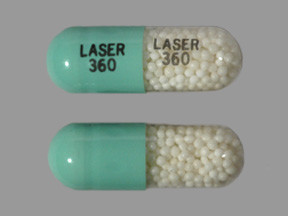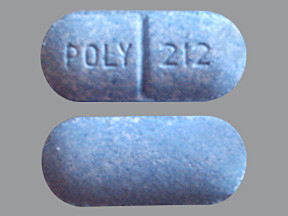GUAIFENESIN/PSEUDOEPHEDRINE - ORAL
PHONETIC PRONUNCIATION: (gweye-FEN-eh-sin/sue-doh-eff-ED-rin)
COMMON BRAND NAME(S): Duratuss, Maxifed
GENERIC NAME(S): guaifenesin/pseudoephedrine HCl
Uses
USES: This combination medication is used to temporarily treat cough and runny/stuffy nose (nasal congestion) caused by infections (such as the common cold), allergies (such as hay fever), and other breathing illnesses. This product is usually not used for ongoing cough from smoking or long-term breathing problems (such as chronic bronchitis, emphysema) unless directed by your doctor. Guaifenesin is an expectorant. It works by thinning and loosening mucus in the airways, clearing congestion, and making breathing easier. Pseudoephedrine is a decongestant (sympathomimetic). It reduces nasal congestion by narrowing the blood vessels in the nose. If you are self-treating with this medication, it is important to read the package instructions carefully before you start using this product to be sure it is right for you. (See also Precautions section.) Cough-and-cold products have not been shown to be safe or effective in children younger than 6 years. Therefore, do not use this product to treat cold symptoms in children younger than 6 years unless specifically directed by the doctor. Some products (such as long-acting tablets/capsules) are not recommended for use in children younger than 12 years. Ask your doctor or pharmacist for more details about using your product safely. These products do not cure or shorten the length of the common cold and may cause serious side effects. To decrease the risk for serious side effects, carefully follow all dosage directions. Do not give other cough-and-cold medication that might contain the same or similar ingredients (see also Drug Interactions section). Ask the doctor or pharmacist about other ways to relieve cough and cold symptoms (such as drinking enough fluids, using a humidifier or saline nose drops/spray).
How to use GUAIFENESIN/PSEUDOEPHEDRINE - ORAL
HOW TO USE: Take this medication by mouth with or without food, as directed by your doctor. If you are self-treating, follow all directions on the product package. To prevent trouble sleeping, do not take this medication close to bedtime. If you are uncertain about any of the information, ask your doctor or pharmacist. If you are using the liquid form of this medication, carefully measure the dose using a special measuring device/spoon. Do not use a household spoon because you may not get the correct dose. Guaifenesin may have a bitter taste. Swallow capsules and tablets whole. Some tablets may be split if they have a score line and your doctor or pharmacist tells you to do so. Chewable tablets may be swallowed whole or chewed. Dosage is based on your age, medical condition, and response to treatment. Do not increase your dose or take this drug more often than directed. Drink plenty of fluids while taking this medication. Fluids will help to break up mucus and clear congestion. Caffeine can increase the side effects of this medication. Avoid drinking large amounts of beverages containing caffeine (coffee, tea, colas), eating large amounts of chocolate, or taking nonprescription products that contain caffeine. Tell your doctor if your condition is accompanied by fever, severe sore throat, rash, persistent headache, or if it persists, returns, or worsens after 7 days. These may be signs of a serious medical problem. Seek immediate medical attention if you think you may have a serious medical problem.
Side Effects
Precautions
Interactions
Overdose
Images
Reviews
Faq for GUAIFENESIN/PSEUDOEPHEDRINE - ORAL
Guaifenesin/Pseudoephedrine is used to relieve symptoms caused by the common cold, flu, allergies, or other breathing illnesses such as sinusitis or bronchitis.
Guaifenesin helps loosen congestion in your chest and throat, making it easier to cough out through the mouth. Pseudoephedrine is a decongestant that helps relieve nasal congestion by narrowing the blood vessels in the nasal passages.
Common side effects may include nervousness, dizziness, headache, nausea, upset stomach, loss of appetite, and trouble sleeping. Consult your doctor if any of these side effects persist or worsen.
It is generally advised to avoid Guaifenesin/Pseudoephedrine if you have high blood pressure, as pseudoephedrine can raise blood pressure and potentially worsen the condition. Consult your doctor or pharmacist for alternative options.
Guaifenesin does not typically cause drowsiness, but pseudoephedrine can sometimes cause mild drowsiness. If you experience excessive drowsiness or any other severe side effects, seek medical attention immediately.
Before taking this medication, consult your doctor or pharmacist about potential drug interactions. Guaifenesin/Pseudoephedrine can interact with certain medications, such as MAO inhibitors, antidepressants, and blood pressure medications, causing serious side effects.
Follow the instructions provided by your healthcare professional or the medication label. Take the medication by mouth with or without food, usually every 4 to 6 hours as needed. Do not exceed the recommended dosage.
Guaifenesin/Pseudoephedrine is not recommended for children under the age of 12 without the guidance of a healthcare professional. Always consult a pediatrician before giving any medication to a child.
It is generally advised to avoid alcohol while taking Guaifenesin/Pseudoephedrine, as alcohol can increase the risk of side effects such as dizziness or drowsiness.
Disclaimer
IMPORTANT: HOW TO USE THIS INFORMATION: This is a summary and does NOT have all possible information about this product. This information does not assure that this product is safe, effective, or appropriate for you. This information is not individual medical advice and does not substitute for the advice of your health care professional. Always ask your health care professional for complete information about this product and your specific health needs.


No Reviews Yet